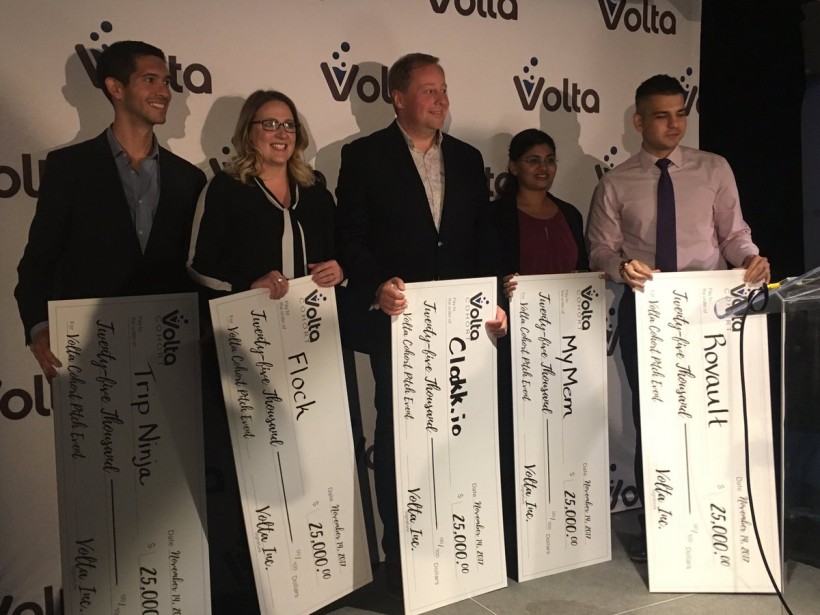Armed with $25,000 in initial funding, Halifax startup MyMem plans to spend 2018 rolling out its Software-as-a-Service product that helps people with dementia remember key aspects of their lives.
The company is developing a smart phone or tablet app that uses voice-enabled technology to help people with cognitive challenges remember their life stories, or even simple matters like their grandchildren’s names. In the next year, it hopes to work with seniors’ facilities to test MyMem with dementia sufferers and assess the market for the product.
The company is funding its go-to-market strategy with a $25,000 investment that it won at the Volta Cohort pitching event last week. MyMem was one of five early-stage startups that divided $125,000 in equity financing at the event hosted by Volta Labs.
“We are in a good position with the funds we have from Volta Cohort,” said Co-Founder Aishwarya Ravichandran in an interview after the event. “We can achieve all those objectives with the funding we have at the moment.”
The story of MyMem’s goal to bring a digital “life story book” to dementia sufferers began when Ravichandran and others attended the Hacking Health Hackathon. The event in March aimed to bring entrepreneurs together to create digital health products.
Ravichandran was inspired by one participant, Luc Sirios, sharing the story of how his mother was suffering from memory loss. This reminded Ravichandran of her grandmother in India who also was losing her memory.
“Taking this inspiration to mind and believing that this app might be useful for people like my grandmother and many other older adults, we formed a team there and built a demo of the mobile app within 24 hours of the event,” said Ravichandran.
MyMem follows a Business-to-Business SaaS model, targeting home care and retirement facilities. Ravichandran said getting MyMem to market will happen in three different phases over the course of 2018.
PhotoDynamic Set for Clinical Trials
The first step will be launching the beta version of their app in January. To get there, MyMem is looking for an app designer as well as a marketing professional.
In the second phase, the app will be available for both Android and iOS devices in Canada and the US. At this stage, MyMem will test the app at different retirement and care facilities, and has begun discussions with a few organizations in Atlantic Canada about testing the device.
“Once we’re in the stage to actually launch the beta we will get back to them and see if they’d like to do a pilot study or beta test our app in their residencies,” said Ravichandran, who says they have all the resources they need to complete the first two phases.
MyMem’s third phase will involve adding a brain games feature to the app. To make this happen, Ravichandran plans to apply for funding from BDC’s Women in Tech investment program, which recently added an additional $20 million to its fund.
This feature would allow users to engage with games that can help improve their cognitive function as well as provide data to track how much the user is able to remember.
“Over a period of time when you start using the app and start playing the games part we will collect the data and analyze it,” said Ravichandran. “We can give that information to the family members and caregivers to help the user.”
MyMem functions with voice recognition technology that is simple to use, a priority for the elderly or those who struggle with technology. Ravichandran plans to offer a desktop version of the app once the mobile and tablet versions have been launched.
The MyMem team includes Ravichandran, Harish Gopinath, Arun Athisamy and Eric Fisher.










